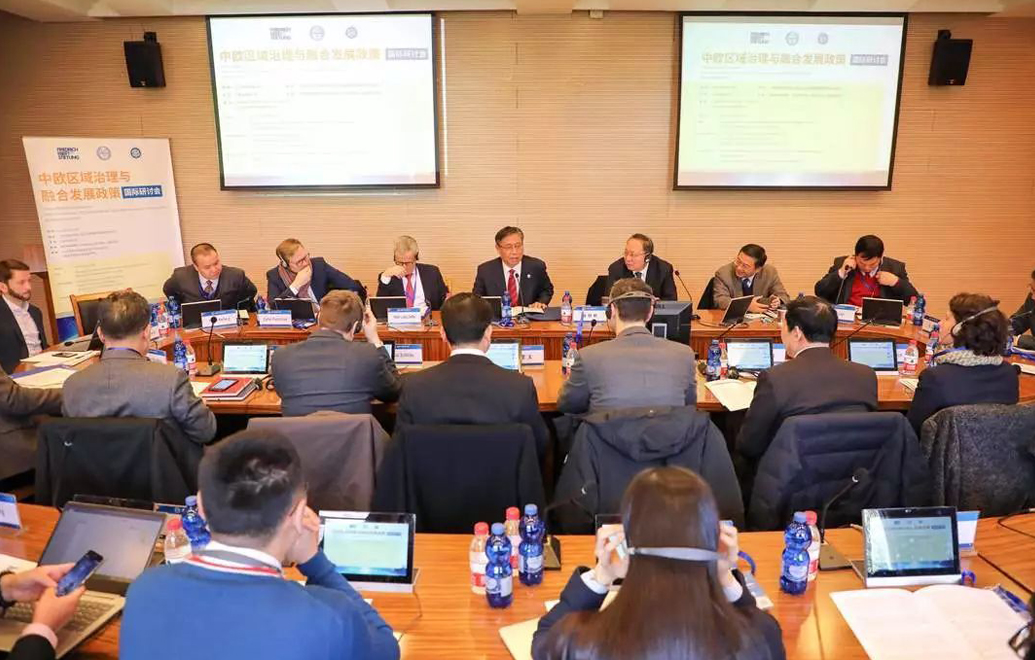Promoting in-depth cooperation between China and EU

Scholars hold in-depth discussions at a seminar on regional governance. Photo: SISU
Regional governance cannot be strengthened without the joint efforts and cooperation of countries in a particular region. How to deal with the differences in terms of national conditions, social situations, histories and cultures, and how to form effective regional governance models and integrated development paths, are issues in need of urgent address. An international seminar concerning “policies regarding regional governance and integrated development in China and the European Union” was held at Shanghai International Studies University (SISU), March 8–9. Scholars and experts held in-depth discussions over the above-mentioned issues.
Pan Qitai, director of the Shanghai Representative Office under the Friedrich-Ebert-Stiftung, said that, currently, China and the EU are at a critical period of development as China-EU relations face opportunities for progress. Both sides should continuously deepen cooperation in fields such as financing, infrastructure construction, new types of urbanization, new energy, technological innovation, energy conservation and environmental protection. China and the EU can better deal with their own problems of unbalanced development through regional cooperation.
Speaking of the tendency of economic globalization and the integration of the regional economy, Gerhard Stahl, a visiting professor from HSBC Business School at Peking University, said that when studying regional governance policies, China and the EU have to take into consideration changes in economy, society, ecology and other social aspects so as to update the goals and emphasis of their development and to implement policies to achieve sustainable development. In addition to cooperating in key areas such as politics and economy, China and the EU should expand bilateral exchanges in other areas.
Xin Hua, executive deputy director from the Center for European Union Studies at SISU, said that regional integration is more than institutional arrangements based on material interests; it should also include mutual identification at the political and cultural level. Therefore, East Asian countries can gain experience from the EU’s step-by -step integration process and make adjustments according to specific situations so as to expand cooperation and dialogue.
Xu Mingqi, president of the Shanghai Institute of European Studies, introduced the characteristics of China’s and the EU’s regional governance and coordinated development, and he put forward a vision for further China-EU collaboration. Xu added that regional governance and integrated development are related to issues in regional economics, sociology, geopolitics and geoeconomics. Therefore, it is worthwhile to strengthen China-EU academic exchanges and explore together how to improve the resilience of the economy.
Yu Hongyuan, director of the Institute for Comparative Politics and Public Policy at the Shanghai Institute for International Studies, said that the strengthening of China-EU cooperation will be beneficial to the sustainability of the Belt and Road initiative.

 PRINT
PRINT CLOSE
CLOSE